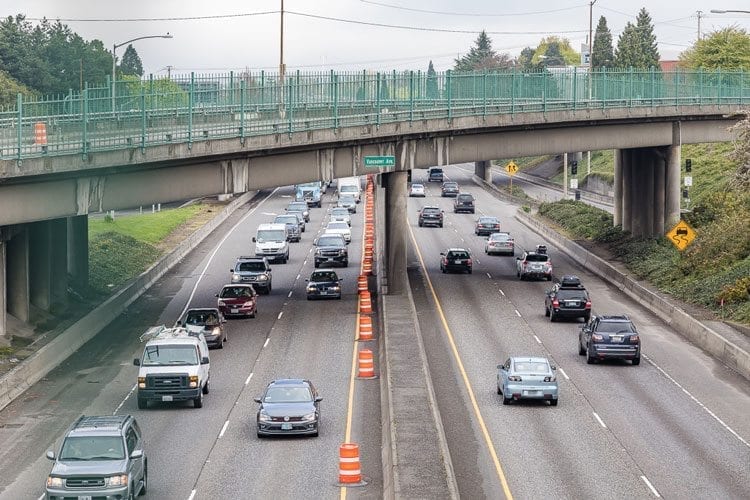Committee will meet five more times and seek public input prior to making recommendation to Oregon Transportation Commission
The Portland Region Value Pricing Advisory Committee met for the first time Monday at the regional offices of the Oregon Department of Transportation (ODOT) in Portland. The committee is scheduled to meet five more times before providing input and recommendations to the Oregon Transportation Commission in June.

The 25-member committee is made up of various elected representatives, public leaders and transportation officials in Washington and Oregon including Clark County Councilor Eileen Quiring, Vancouver Council Member and Mayor-elect Anne McEnerny-Ogle and Kris Strickler, the southwest regional administrator for the Washington State Department of Transportation (WSDOT).
The purpose of the committee is to evaluate options, consider public input and determine effects and potential mitigation strategies for implementing tolls on I-5 and I-205 on the Oregon side of the Columbia River. Oregon lawmakers have proposed tolling as a part of the $5.3 billion transportation plan (House Bill 2017) passed earlier this year.
Video from Oregon Department of Transportation
The Oregon Transportation Commission is responsible for putting together a proposal that will seek federal approval for the tolling plan that would impact more than 70,000 Washington residents who commute to work in Oregon each week.
The co-chairs of the committee are Oregon Transportation Commission members Alando Simpson and Sean O’Hollaren.
“This is an important time in our transportation system,’’ said Simpson, referring to Oregon House Bill 2017 and its proposed impacts on residents in both Oregon and Washington. Simpson said that the Oregon Transportation Plan will provide the opportunity to “make some important investments in our system and hopefully get us to the places we all know we need to be, which is minimize our amount of congestion we’ve unfortunately inherited and more importantly put those investments into areas that are most in need in our system statewide.’’
Citizen comments to the Oregon TOLLING policy advisory committee. Video courtesy of Oregon Department of Transportation
Simpson’s comment appeared to confirm that the revenue generated from the proposed tolling could be used by Oregon officials to pay for transportation improvements anywhere in that state. That raised the eyebrows of some in attendance at the meeting who pointed out Clark County residents could potentially pay tolls that could produce money for improvements in Oregon on roads rarely traveled on by those same Washington commuters.
Monday’s meeting was largely informational and introductory and no substantive discussions took place.
“There is not a single answer or solution to the problem,’’ O’Hollaren said. “We can’t dig our way out of the problem fast enough.
“We have to work in partnership with Washington state and Vancouver in a productive way,’’ O’Hollaren added. “We are making some assumptions and those assumptions are that people from Vancouver want to spend time in traffic no less than people in Portland.’’
O’Hollaren’s comments about potential traffic congestion relief were somewhat surprising because Oregon’s Transportation plan doesn’t offer any in the form of new lanes or capacity on either I-5 or I-205 or new corridors between the two states.
“The situation on I-5 and I-205 continues,’’ O’Hollaren said. “We have seen the numbers of vehicles and delays increase in both places. The commission has a mandate to come up with some recommendations and we have to do it in a relatively short order.’’
McEnerny-Ogle was not in attendance at Monday’s meeting. She did send a letter with some comments, which were shared by Penny Mabie, who facilitated the meeting. Among McEnerny-Ogle’s comments was a request that one of the six committee meetings be held in Clark County. Mabie said that all six of the meetings would be held at the ODOT office in Portland but that the committee would discuss activities in Clark County that will provide opportunities for public input.
Quiring made a few introductory comments near the beginning of the meeting.
“What I hope to do is represent the 75,000 commuters that come from Clark County and Southwest Washington to make sure they are not overly impacted by what happens here at the committee and I would like to add whatever I can to the conversation,’’ Quiring said.
Strickler pointed out that the proposed tolling could have an “inequitable impact on Washington residents. That’s what we’re hearing so moving forward we want to make sure that’s understood.’’
The next meeting of the Portland Region Value Pricing Advisory Committee is Thu., Dec. 7.




